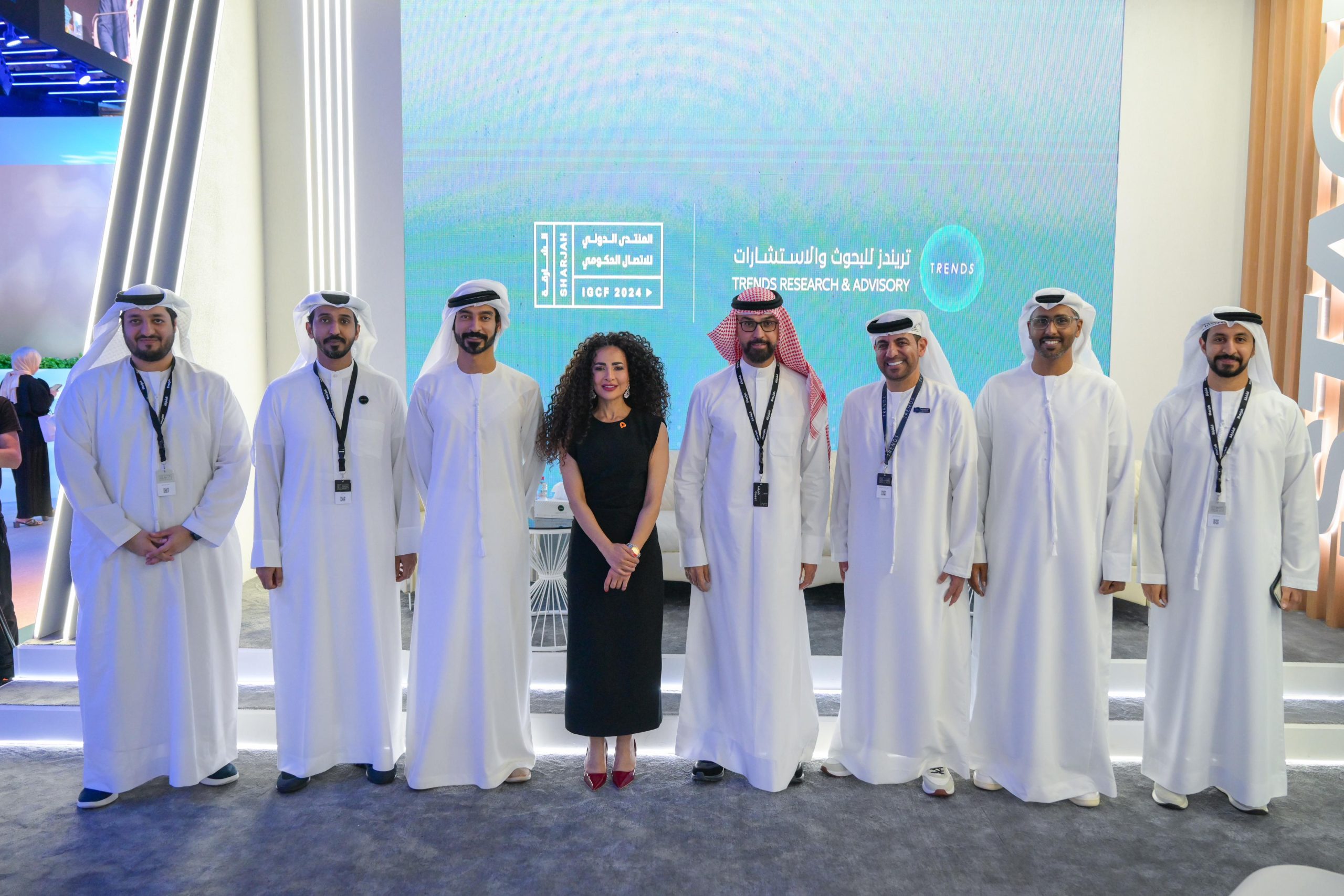-TRENDS launches a study on «Asian Resilience» and showcases its support for scientific research
-The Center’s pavilion welcomed officials, ambassadors and academics who praised the insightful participation in the Forum
-TRENDS contributed to the success of the 13th edition of the Forum as a strategic partner
TRENDS Research and Advisory concluded its successful participation in the 2024 International Government Communication Forum, where it served as a strategic partner for the 13th edition. The Center played a significant role in the success of the event by presenting research papers, holding scientific symposiums, and engaging in panel discussions that addressed various contemporary issues and challenges facing government communication in the age of rapid digital transformation. The discussions also explored the future of different media forms in the era of agile governments.
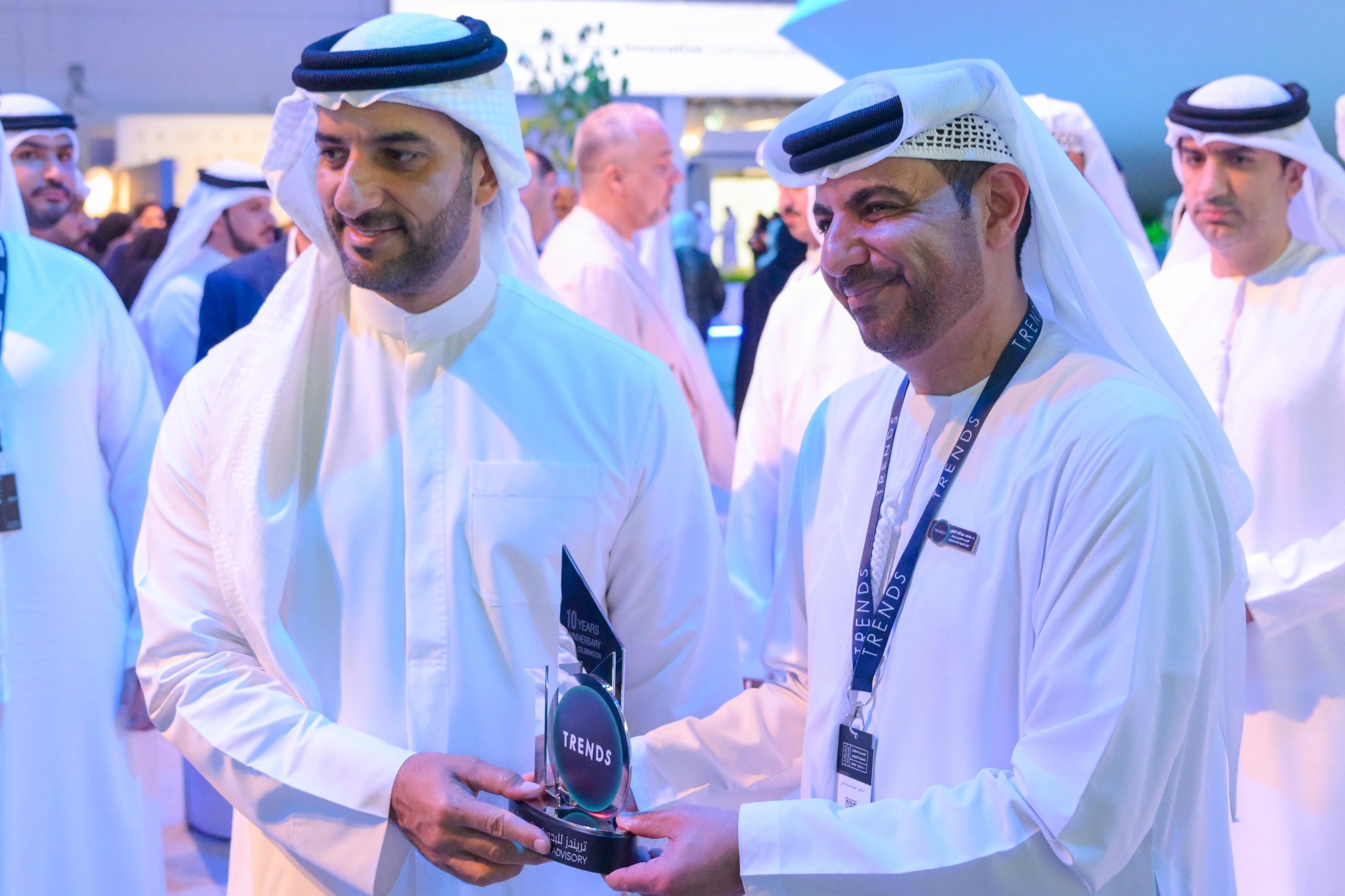
Throughout the two-day forum, the Center’s pavilion received a significant number of visitors, including His Highness Sheikh Sultan bin Ahmed bin Sultan Al Qasimi, Deputy Ruler of Sharjah and Chairman of the Sharjah Media Council; H.E. Zaki Anwar Nusseibeh, Cultural Advisor to the His Highness the UAE President and Chancellor of the UAE University; H.E. Zhang Yiming, Ambassador of the People’s Republic of China to the UAE; H.E. Antoine Delcourt, Ambassador of Belgium to the UAE; H.E. Xhabir Hamiti, Ambassador of Kosovo to the UAE; and Dr. Jamal Mohammed Al-Kaabi, Director General of the National Media Office, alongside a group of academics, media professionals and experts.
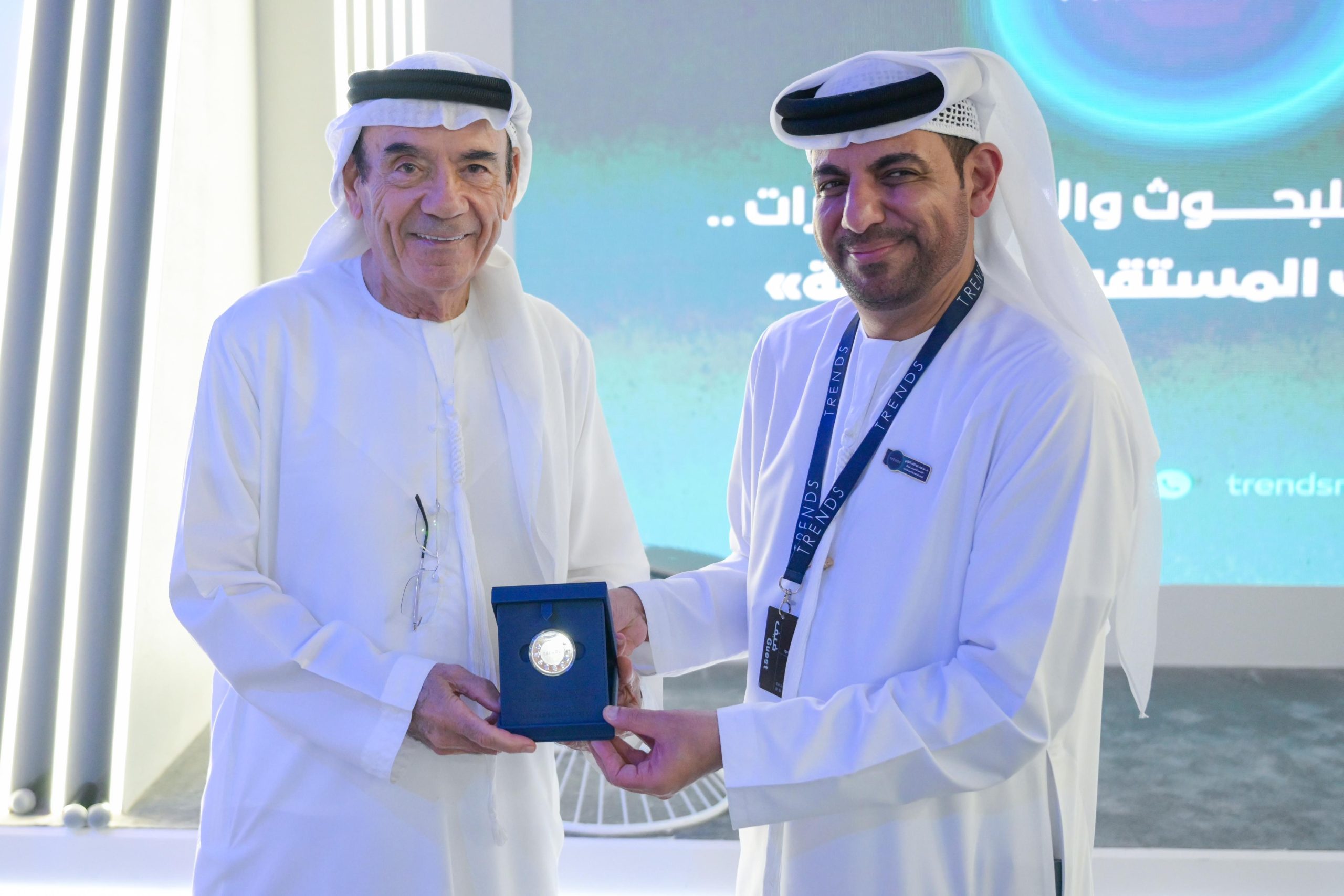
Podcast Episodes
In support of knowledge dissemination and the exchange of ideas, the podcast studio Trending Echoes recorded several new episodes with key figures participating in the forum, including thought leaders, officials, experts and specialists. This provided an interactive platform for in-depth conversations and fruitful discussions on contemporary global issues.
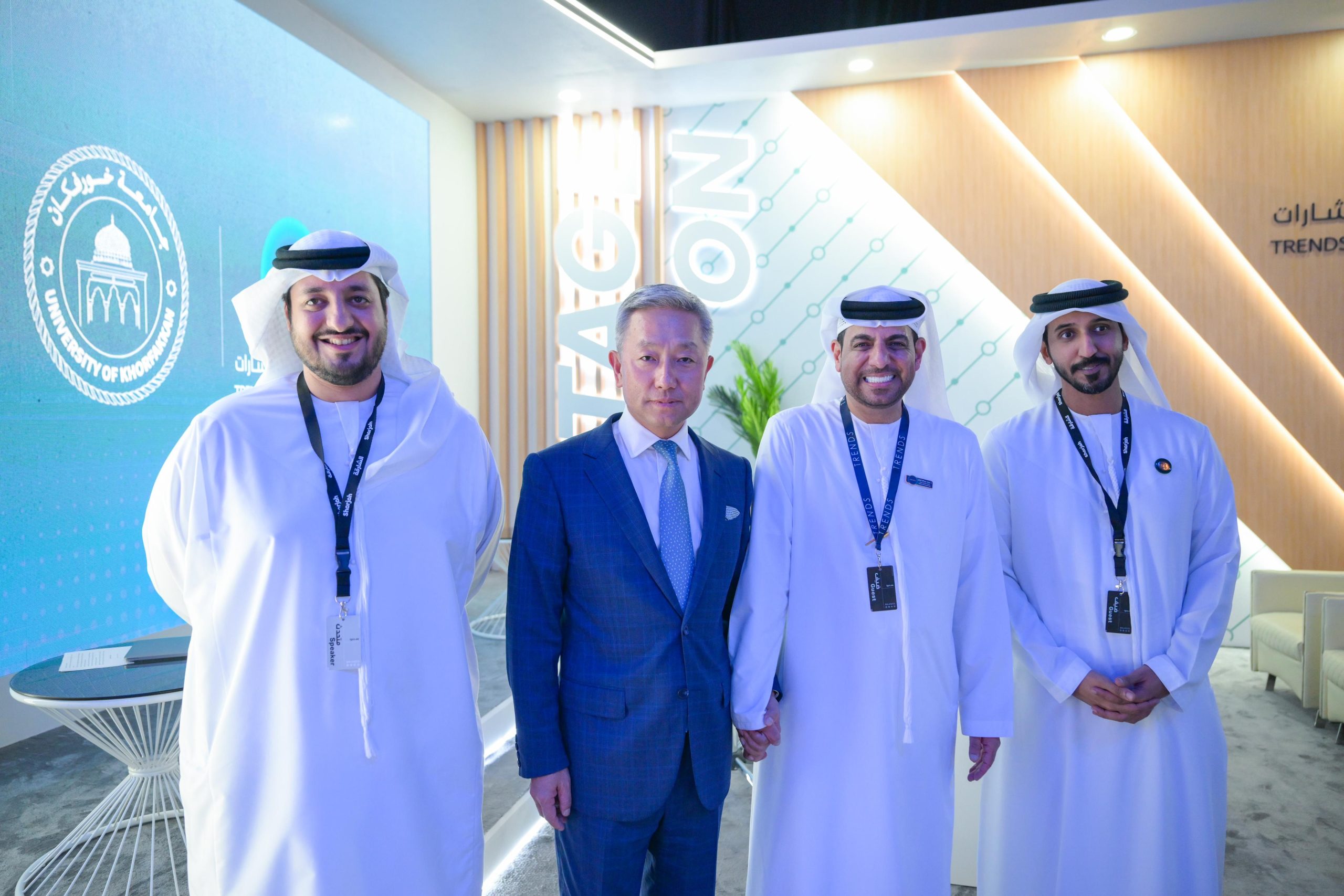
Media and Agile Governments
During a symposium titled “The Future of Media in the Era of Agile Governments: Challenges and Opportunities”, participants emphasized the critical role of media in delivering information, shaping public opinion, and fostering civic engagement, especially in light of the need for agile government mechanisms that promote transparency and interaction with the public. However, challenges such as the digital transformation’s impact on traditional media business models, the spread of fake news, and issues related to accessing government information and enhancing transparency were highlighted.
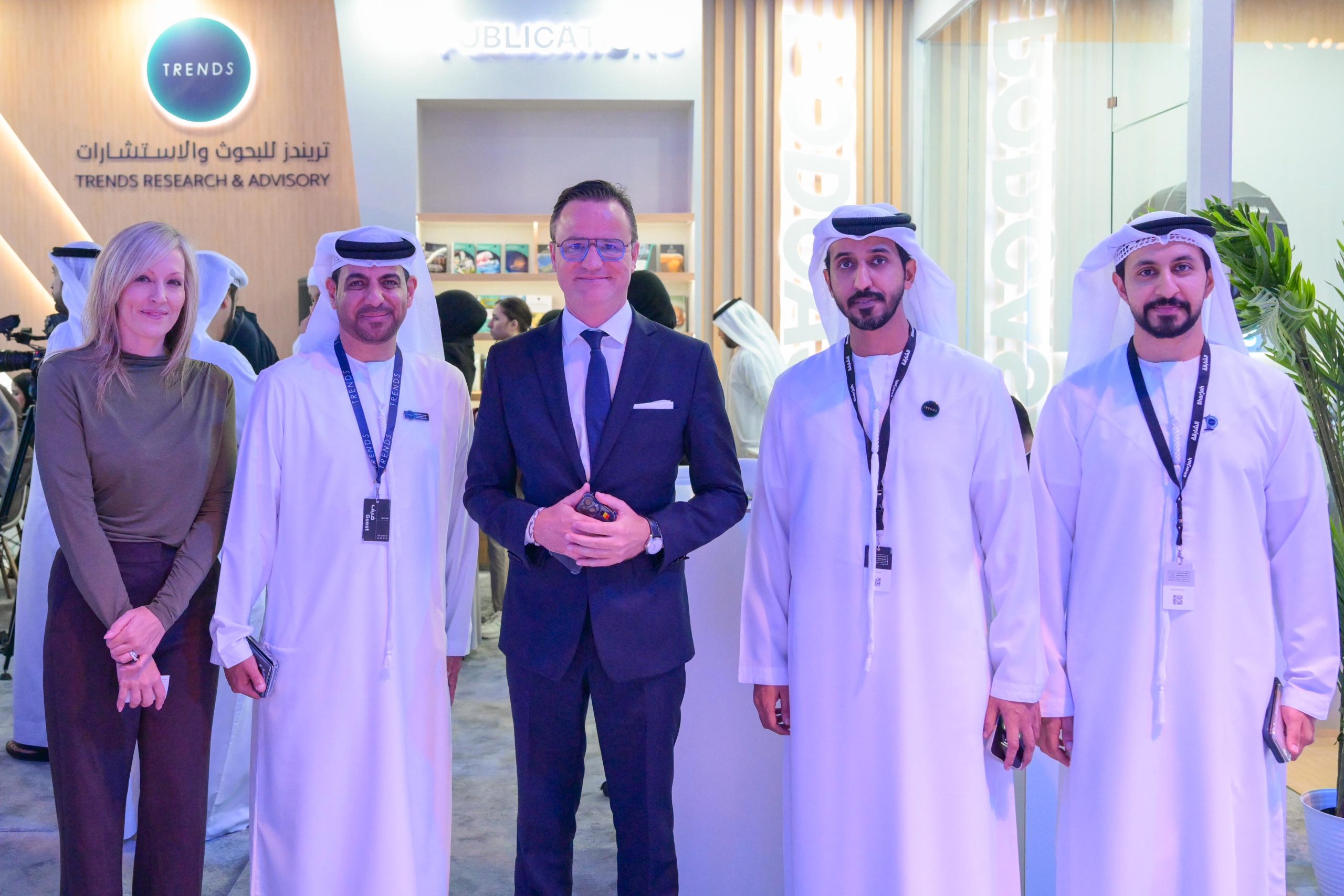
The panel, moderated by Maryam Al-Jneibi, a researcher at the Global Barometer Department of TRENDS, included experts such as Dr. Mohammed Abdullah Al-Ali, CEO of TRENDS Research and Advisory; H.E. Mohamed Ghanem Mustafa, Director General of Ras Al Khaimah Broadcasting Authority; Dr. Hamad Al-Kaabi, CEO of Aletihad News Center; Sherif El-Bidewy, former Ambassador of Egypt to the UAE and Senior Advisor on Public Affairs at Moharram & Partners; and Iraqi writer Rasheed Al-Khayoun.
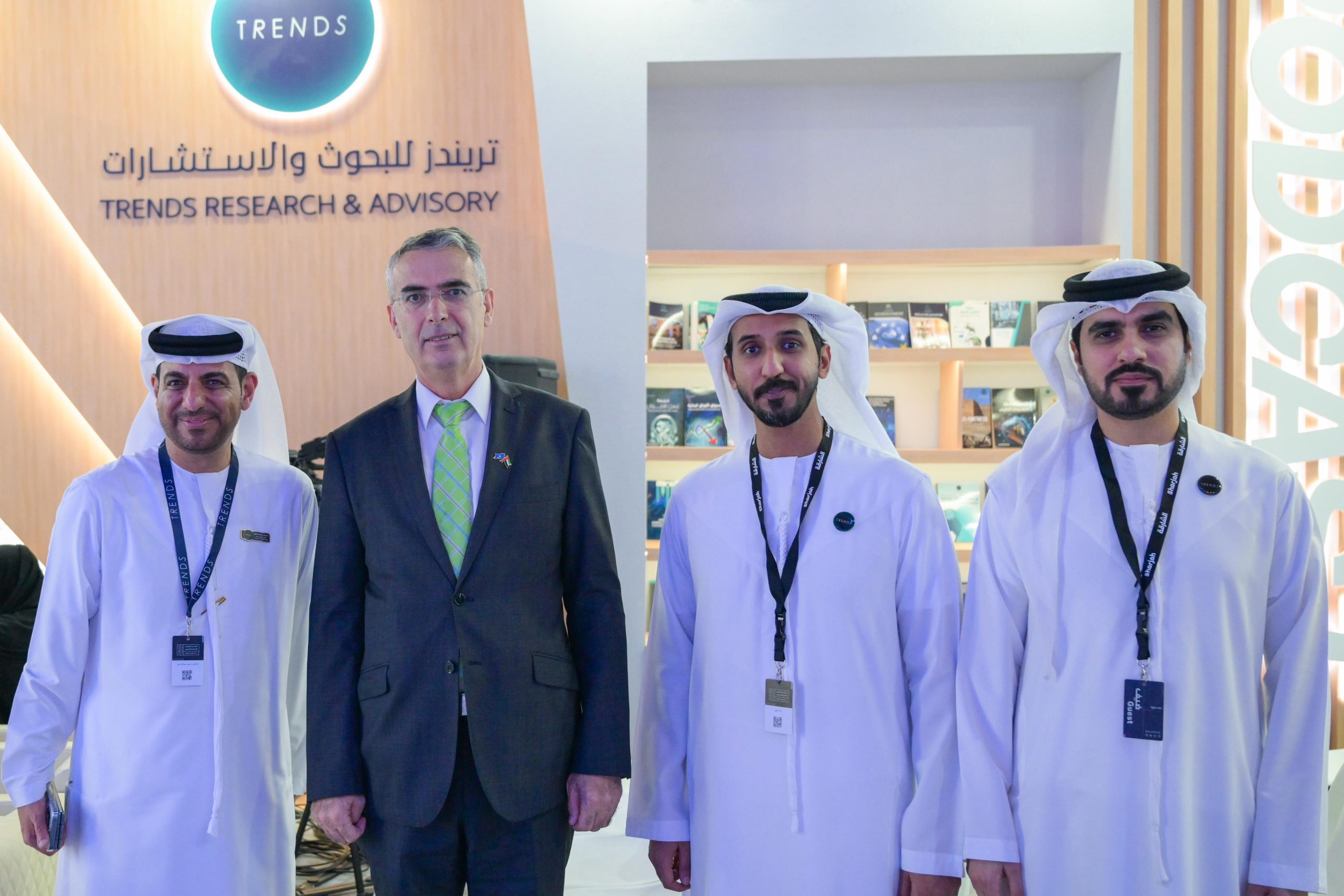
The Digital Tsunami
Participants in the seminar pointed out several challenges facing media, notably what can be termed the “digital tsunami”, which refers to the profound impact of digital transformation on traditional media. The digital wave has swept over traditional media models, forcing a reevaluation of how content is created and distributed.
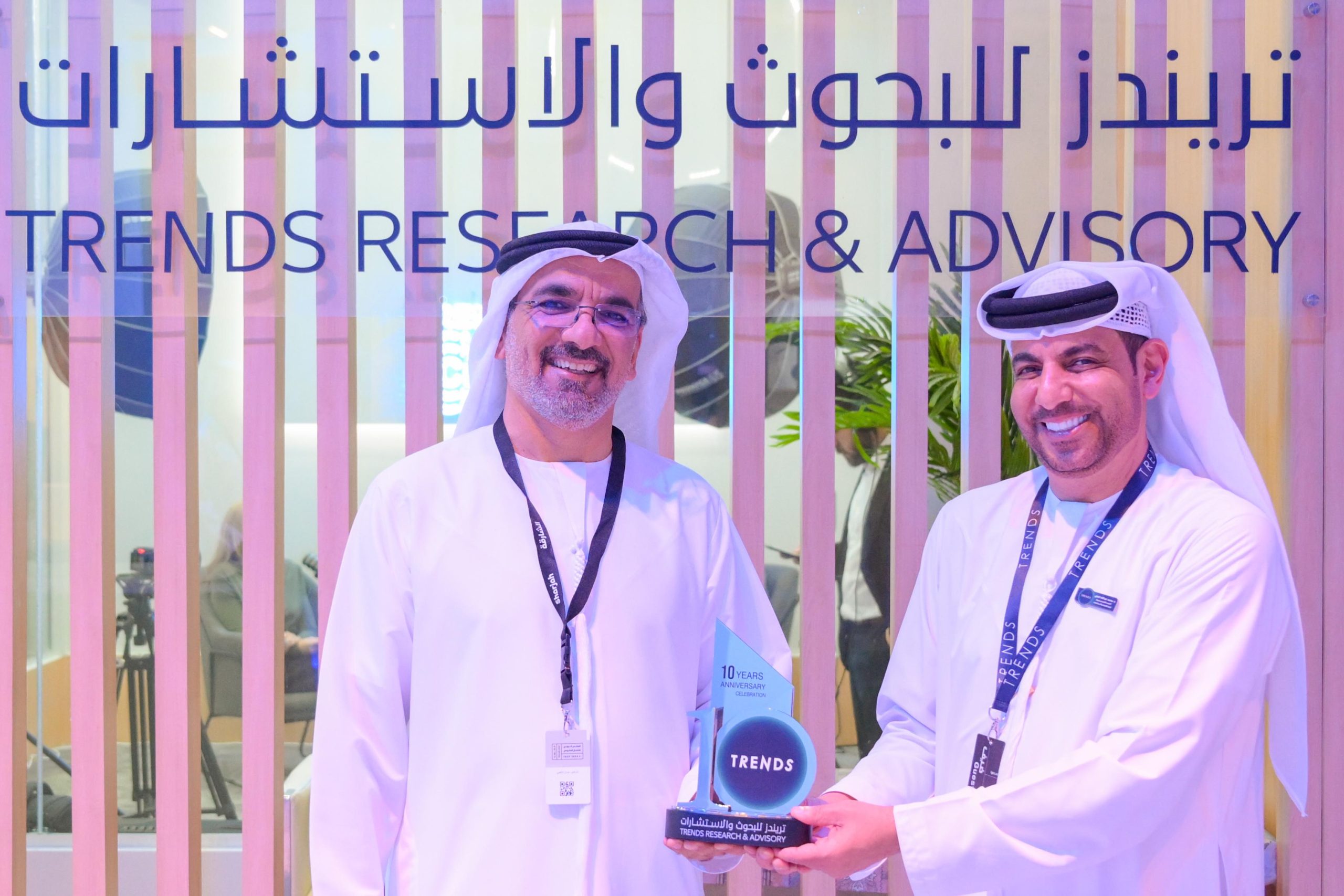
They noted that media institutions face various challenges, including content proliferation, technical challenges due to the density of platforms and media formats, governance needs, and the necessity of promoting credible news. Other challenges include funding issues, the lack of specialized media, insufficient marketing skills, and the absence of media platforms that allow individuals to express their aspirations.
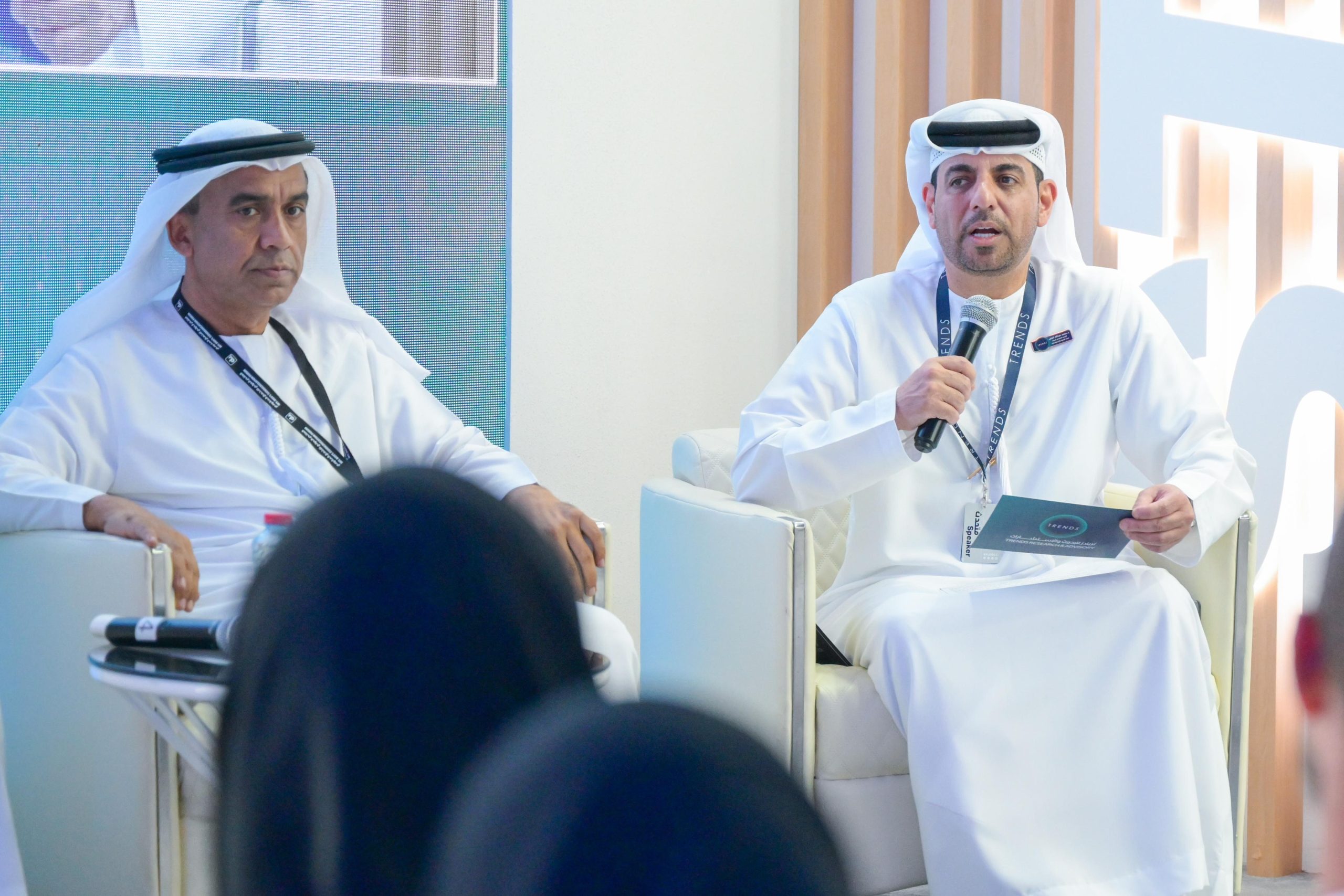
Building Conscious Communities
The speakers highlighted that the era of agile governments offers significant opportunities for the media, such as enhancing community engagement through interactive media platforms and shedding light on important societal issues. Media can also build bridges and promote transparency by drawing attention to issues that might otherwise go unnoticed.
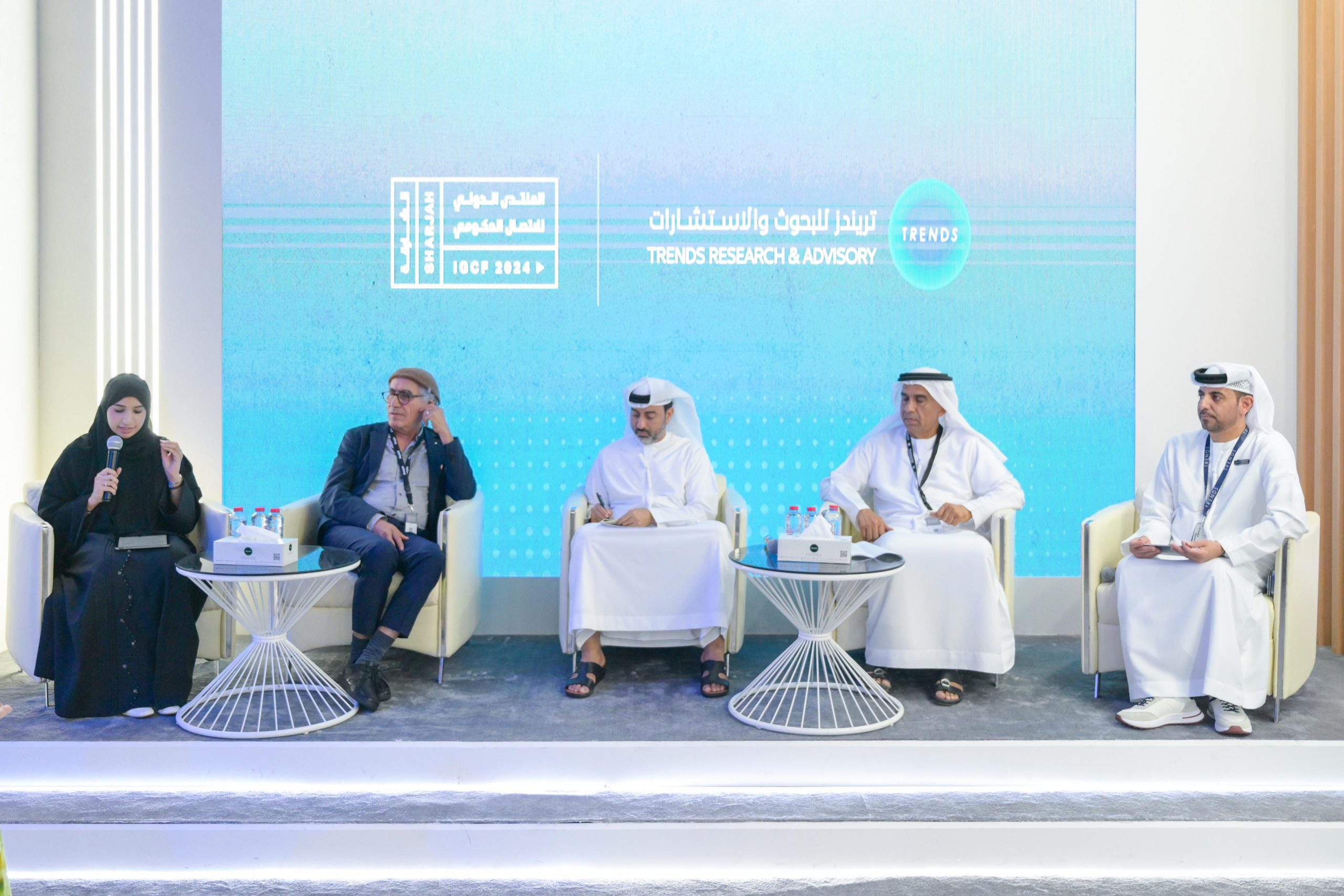
They also mentioned that the digital transformation has impacted traditional media, particularly radio, as digital media has given rise to new stars in the media field at the expense of veteran media professionals. Social media celebrities have overshadowed traditional journalists, which presents major challenges to media institutions. The role of experts has diminished, negatively affecting the quality and accuracy of content.
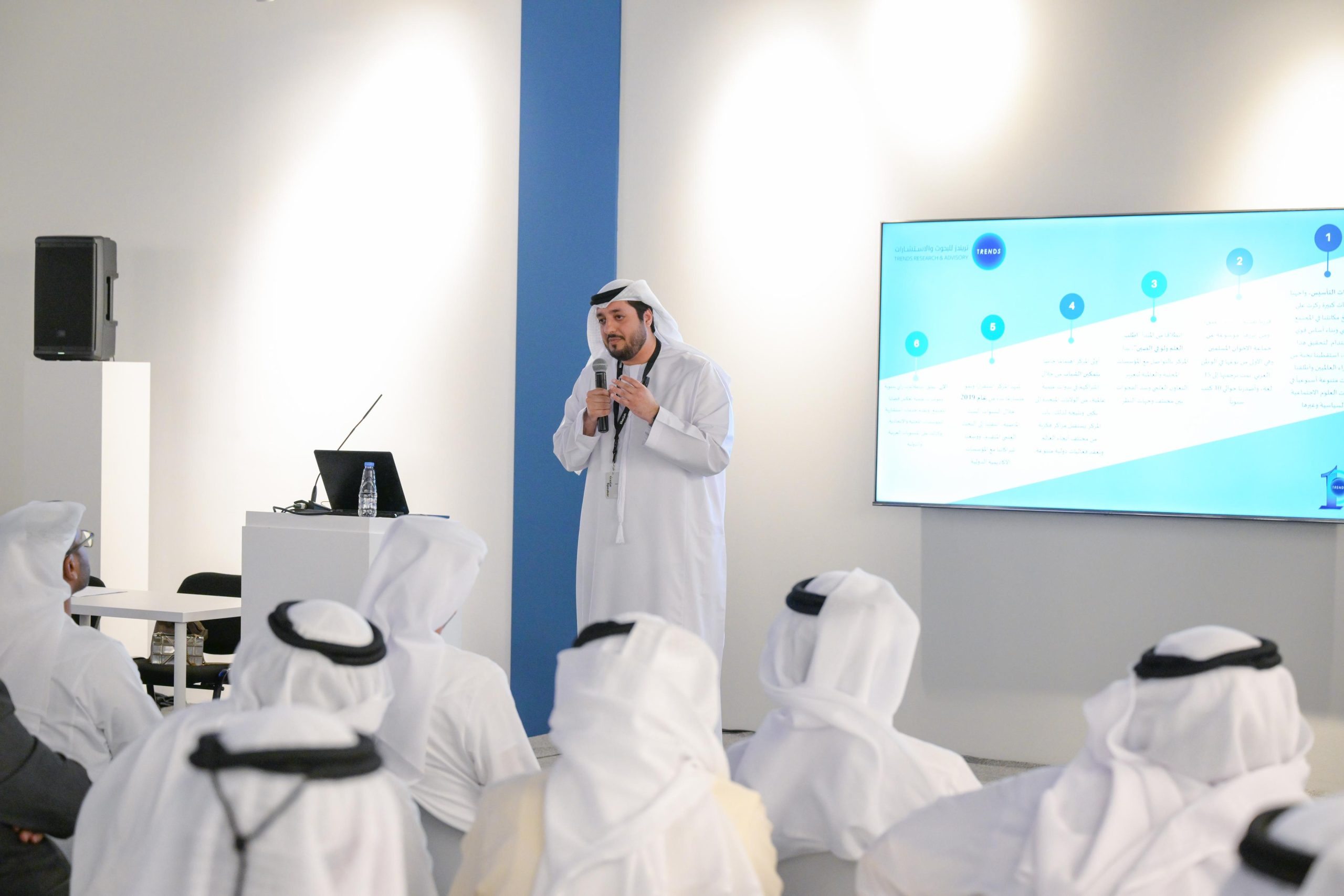
Resilience in the Era of Crises
TRENDS also launched a study titled “Asian Resilience: Learning from Singapore’s Experience to Enhance Government Resilience in the Era of Crises”. Following the launch, the Center’s pavilion hosted a panel discussion on the study’s findings and recommendations, presented by Sultan Al-Rubaei, senior researcher and head of the TRENDS International Training Institute.
Al-Rubaei stated that the Singaporean government played a key role in the country’s economic boom from 2000 to 2023. The study’s analysis revealed that the Singaporean government has shown increasing resilience, which has helped improve the efficiency of its policies.
He added that this resilience has contributed to accelerating economic growth and developing an economy capable of withstanding shocks. The study cited Singapore’s response and recovery during the 2009 global financial crisis and the COVID-19 pandemic as critical examples of the importance of government resilience in adapting to crises and resisting shocks.
Al-Rubaei also pointed out that investment in innovation has been a major factor in Singapore’s economic success in global competitiveness rankings, positioning it as one of the world’s most competitive economies. The government ranked fifth globally in the 2023 Global Innovation Index.
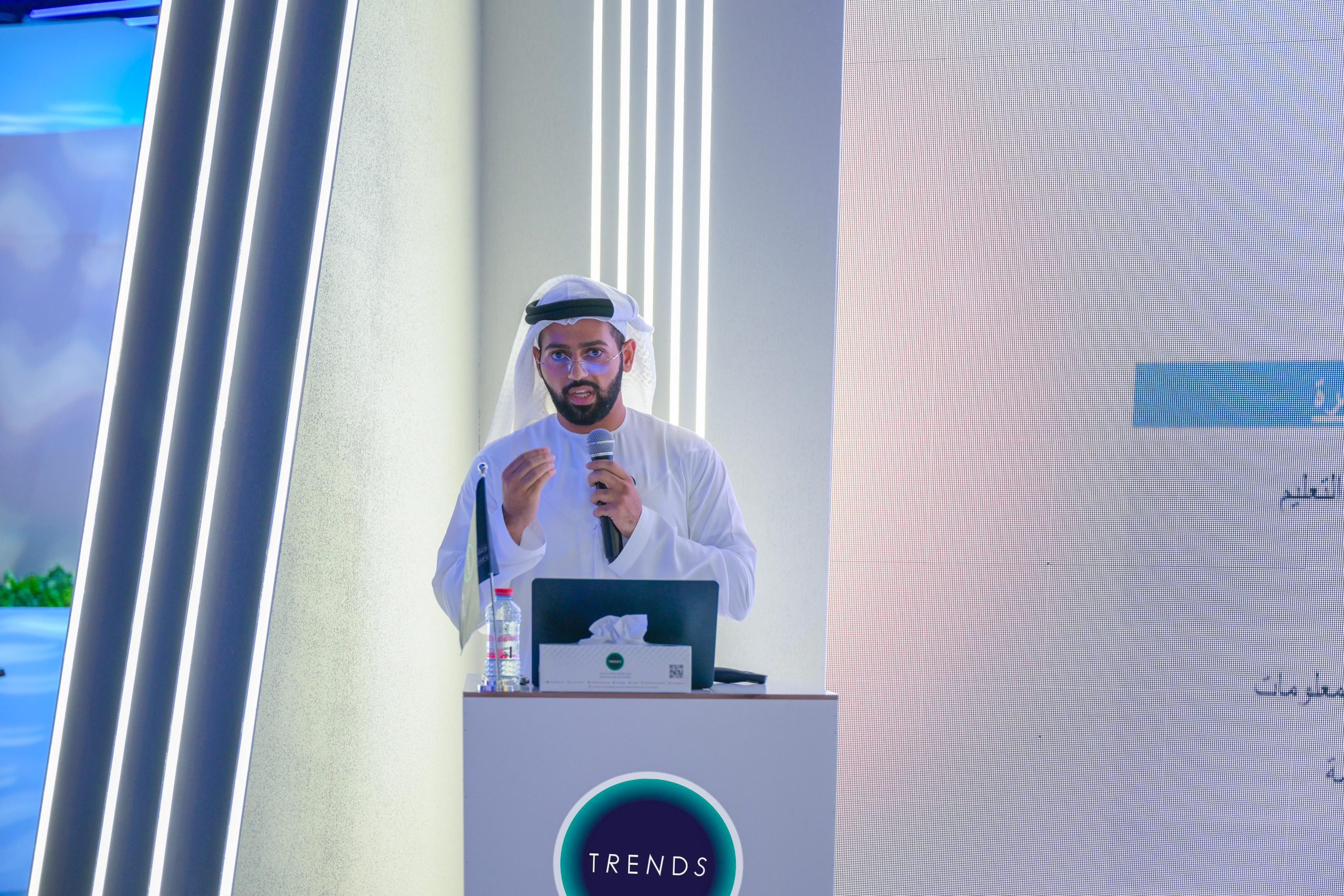
Supporting Scientific Research
Sultan Al-Ali, researcher, Deputy Head of TRENDS Dubai Sector and Director of the Global Barometer Department, highlighted the Center’s initiatives in supporting scientific research through the International Government Communication Forum’s “Researchers Platform”. He noted that during its early years, the Center faced significant challenges, with its primary goal being to establish a strong presence in the scientific community.
Al-Ali explained that the current phase, which began in 2019, marks a period of stability and rapid growth for the Center. Over the past six years, TRENDS has transitioned into advanced scientific research, expanding its partnerships with international academic and research institutions, and launching annual surveys and scientific indicators that reflect societal interests and issues.
He emphasized that the results of the Center’s work over the past years demonstrate the value of its initiatives in supporting scientific research and the community. The Center’s most significant achievement is not only producing knowledge and foreseeing the future but also building a qualified workforce, particularly Emiratis with high scientific capabilities.
